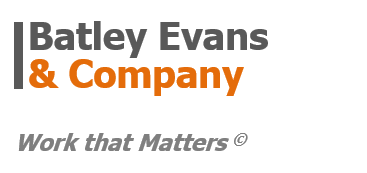The world of the senior manager is complex and crowded. Growing demands on your time and the expectations of instant decisions or immediate responses – well, that’s your new normal. Perhaps you even pride yourself on your ability to thrive under pressure and keep apace of your hectic environment.
It's a good news, bad news story:
The good news is that this frantic work seems to be paying off. Productivity per employee has been steadily increasing for decades. In fact the improvement between the 1960s and the turn of the century was something like 80%.
The bad news is, this has come at a price. Research shows that the average American worker now works five weeks of full time work more than his or her counterpart in the 1970s. I reckon these numbers hold true in Australia too. So the improvement in productivity has been about working harder, not smarter. Are you nodding now as you read this? Does that feel like your own experience?
If this is the case, what I wonder is, where in your work is the opportunity for deep thinking? When you race from activity to activity, how are you learning from the last activity before you move to the next?
John Dewey the influential American psychologist and educationalist once said “We do not learn from experience…we learn reflecting on experience”.
We're busy being busy:
It’s interesting, because I see the same pattern play out when managers come together in the leadership programs I facilitate. When the program contains experiential activities participants often demonstrate a greater interest in what result was achieved than in why that result was achieved. I’ve seen groups perform the same task twice and achieve exactly the same sub-optimal result both times – which suggests they didn’t learn much from their first attempt. The constant pressure on them to be busy being busy at work, transfers across to their participation in learning environments.
There is a better way:
And that’s why one of the most important aspects of our programs is the opportunity to reflect.
By the way, it’s not just my personal opinion; a recent study conducted by Professor Giada di Stefano at HEC Paris demonstrated the importance of reflection in learning. It was a wide ranging study conducted in collaboration with her colleagues at Harvard University and the University of North Carolina and involved both laboratory and field work. In one experiment, employees who spent the last 15 minutes of each day of their training period writing and reflecting on what they had learned did 23% better in the final training test than other employees.
Reflection can take many forms. It might involve private journaling or it might involve dialogue in pairs or in groups. The form matters less than the function. The benefit lies in stopping… and considering what happened, hypothesising why it might have happened and contemplating how your thinking and actions might change as a result.
Because reflection usually takes place at the end of a day in a classroom setting and with on-the-job learning, it might be tempting for you to think of this activity as occurring after the “real” learning has finished for the day. What I say to you is this; reflection is actually when the “real” learning starts.
The opportunity for you:
As you engage with your next learning opportunity, enter into reflective practice with zeal. Truly stop. Think deeply. Question honestly and courageously. Be genuinely open to challenging ideas and make real commitments to behavioural change.
Your world is busy enough. If you’re going to give up the time to participate in some form of learning, it just makes sense for you to maximise the learning you take from the experience.
I wish you well as you change gears and make a commitment to real development through the power of reflection.
Cameron Houston, Principal, Batley Evans & Co

